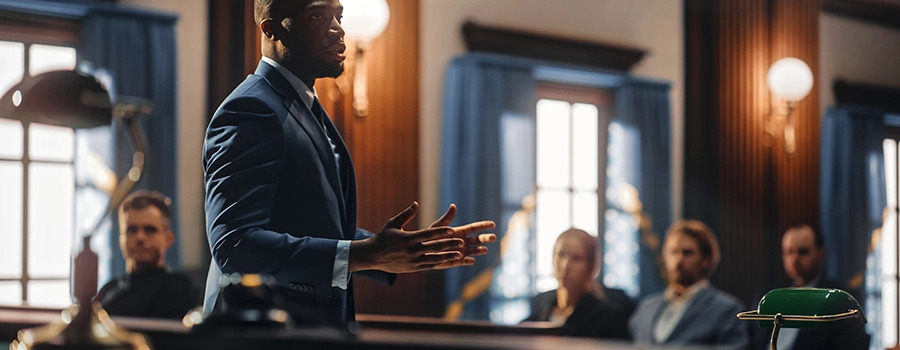There are many, many myths floating around about the criminal justice system with more seemingly piling up every week, myths that seem to get more ingrained every day under a perfect storm of high-profile arrests and court cases. I realized that these myths don't stand alone, they're part of a general misunderstanding about the criminal justice system that's prevalent.
This is one of our regular themes, writing about how things really work while pushing aside the myths.

The Biggest Myth – You Have to be Rich . . .
Let’s start with one of the biggest myths: ‘Rich’ people win trials because they’re rich and that gives them an advantage over the prosecution.
It’s not true but not for the reasons you may think.
The rebuttal to this was expressed perfectly in Waco: The Aftermath in a scene that takes place in the federal courthouse where some surviving Branch Davidians are on trial for the murder of four ATF officers. The prosecutor accuses the lead defense attorney of “not playing fair” in talking to the press.
“Not fair,” the defense attorney replies, “you have the full weight of the state and unlimited resources behind you and you’re worried about me not being fair?”
That’s it in a nutshell, the prosecution represents the ‘people’ – city, state, nation. The government. The government has money, scientists, labs, experts, investigators, and power – the stamp of authority that virtually requires cooperation from, well, everyone.
The Clemens’ Trial
A few years ago the Justice Department prosecuted Roger Clemens for lying to Congress. Roger Clemens was a retired, former professional baseball pitcher. He claimed, under oath to a ‘select committee’ that he never took steroids. A former teammate later claimed he did. He was arrested.
The investigation that resulted in the arrest lasted about two years. He went through two trials, the first ended in a mistrial after the government, ironically, was found to have cheated. The second trial led to an outright acquittal. Over the course of the investigation and two trials, the Justice Department spent $120 million. That is not a misprint: $120 million to prove that a baseball star took steroids then lied about it.
The only advantage Roger Clemens had was that his lawyer was [a lot] better than the justice department’s.
Hearsay is Not What You Think it is
This week saw another myth exposed on national cable news. There’s a widespread fiction that what you say or post on social media won’t affect a case against you. ‘Hearsay’ rules prohibit it.
They don’t. Washington State courts recognize so many exceptions to the hearsay rule that one could say that the rule is overrun by the exceptions. Some exemptions allow for more exemptions allowing for a string of seeming hearsay to be allowed into court.
If you talk about the case against you – on a tweet, Instagram, Facebook, a national cable news network – you are almost assured of running head on into an exemption. Say something about how you felt at the time, possible defenses, alibis, offer your interpretation of the law and there’s a solid chance it will be used against you sooner than later.
Do any of this and you hamstring your defense.
Lessons
When you are facing a criminal charge you have nothing to gain in talking about it anywhere, anytime. But you have everything to lose – even if you were ‘just joking around.’
Once upon a time a batter facing Roger Clemens was rung up on a pitch six inches outside of the strike zone. He turned to the umpire and said, "The guy's great, he doesn't need your help." Neither does the prosecution.

